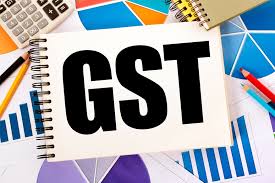Govt working to bring changes in GST Act, public platforms: Jayant Sinha
The government is working to bring changes in the GST Act and other public platforms so that companies can utilise data to grow big in size and scale, Jayant Sinha, Chairperson, Parliament Standing Committee on Finance, said on Thursday.
"Public platforms such as UPI and Aadhaar are very important platforms. Even then, for us to leapfrog, we have to do more in terms of public platforms," Sinha said while speaking at the Assocham e-summit on 'Non-Banking Finance Companies & Infrastructure Financing: Transforming the Financial Lending Landscape'.
When the Factoring Bill came to the Standing Committee on Finance, the government was opening up factoring to more non-banking financial companies and enabling more NBFCs to participate in that.
"But even as we were doing that we were not addressing some important platform and data related issues. That is why we suggested that anything that is on GST as an invoice should automatically be gone to TReDS as well. Then it can be used on TReDS to finance receivables and so on
.So, that was the recommendation of the committee, and I am very happy to tell you it was accepted by the government," Sinha said.
However, he said, any change will need statutory backing through legislation, as the GSTN (GST Network) does not enable the usage of data within GSTN for any other purpose.
So, there is a need to change not only the central GST Act but all the state GSTN Acts to enable GSTN invoices to automatically get on to TReDS or other platforms, he added.
TReDS is a platform that facilitates discounting of invoices for MSMEs from corporate buyers through multiple financiers.
He said GST is fast becoming the commercial backbone of this country, and the government is doing all the necessary changes that will be required to support the businesses.
For India to leapfrog and become a globally competitive economy of the size of USD 10 trillion, public platforms, as well as private innovation, need to work in tandem, he said.
While making public platforms frictionless is 10 per cent of the story, 90 per cent of the story lies with the private players and businesses to innovate.
"So, those are the kind of things we are working on right now, and there is a report that we will be putting out on strengthening credit flow to MSMEs, and we would welcome input from NBFCs on that...
So, that was the recommendation of the committee, and I am very happy to tell you it was accepted by the government," Sinha said.
However, he said, any change will need statutory backing through legislation, as the GSTN (GST Network) does not enable the usage of data within GSTN for any other purpose.
So, there is a need to change not only the central GST Act but all the state GSTN Acts to enable GSTN invoices to automatically get on to TReDS or other platforms, he added.
TReDS is a platform that facilitates discounting of invoices for MSMEs from corporate buyers through multiple financiers.
He said GST is fast becoming the commercial backbone of this country, and the government is doing all the necessary changes that will be required to support the businesses.
For India to leapfrog and become a globally competitive economy of the size of USD 10 trillion, public platforms, as well as private innovation, need to work in tandem, he said.
While making public platforms frictionless is 10 per cent of the story, 90 per cent of the story lies with the private players and businesses to innovate.
Source;https://www.moneycontrol.com/news/business/msmes-fear-harassment-misuse-of-power-by-officials-under-new-gst-regime-7862571.html
Download our App to get knowledge updates: https://play.google.com/store/apps/details?id=com.app.gstmitra
Join Our Telegram Channel for more updates:https://t.me/praveengst
"




Comments
Post a Comment